Table of Contents
Do you know where the power for an air conditioner comes from? All the motors start the cooling process; where exactly does all that come from? Well, all that lies in the AC capacitor. Understanding the know-how of your AC works has to be the basic thing. Moreover, this basic knowledge about your cooling machine helps you to maintain it better. Just like if you know where to put oil inside your AC compressor, you’d only know that once you get the idea of where your compressor is located. Now, if you want to understand the workings of the capacitor, the difference between the start capacitor and the run capacitor, and what this element is inside an AC unit, do not worry; we are here to guide you. Let us expand our knowledge about our electrical appliances and make our homes cooler!
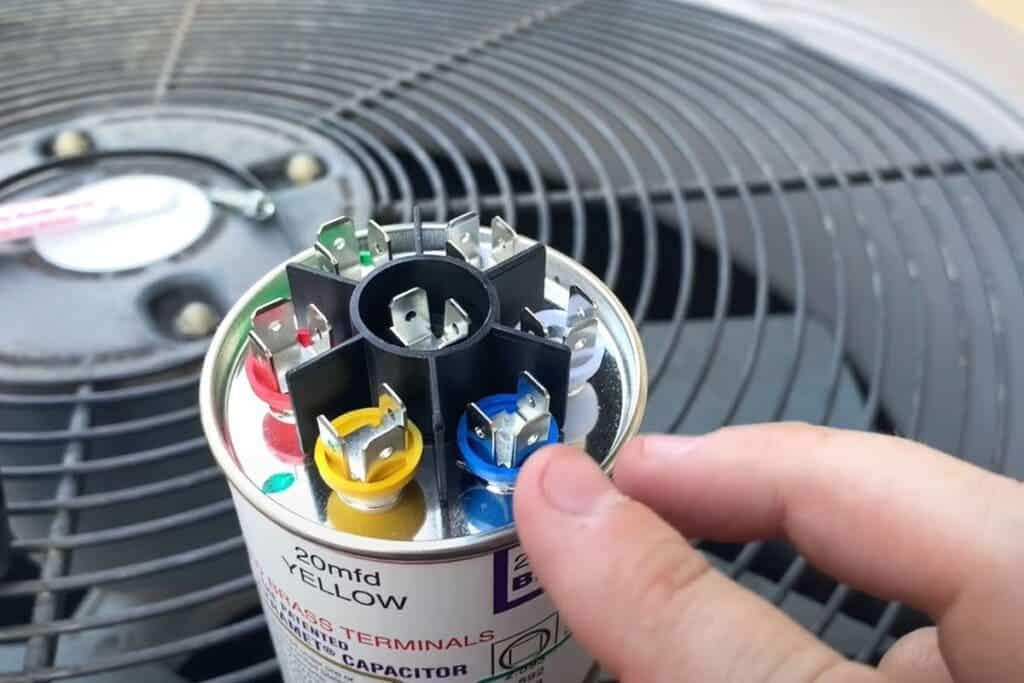
AC Capacitor
Enjoying the cool breeze of your ac all day is a really good experience in this heat. However, understanding what each and everything is used for is also crucial. Just like the working of an AC compressor, the source of cool air. An AC capacitor is a crucial part of air conditioning systems because it helps the motors in the system start and continue to run. It is a temporary power source that stores energy and releases it when needed, making it a shining, cylindrical battery. The efficient operation of the HVAC system depends on a stable and continuous power supply, which is ensured by this process. The air conditioner must work much harder to circulate cool air when the capacitor fails or malfunctions, which increases wear and tear and energy costs. This may also result in the AC unit struggling through the cooling cycle or making strange humming noises. General wear and tear, power surges, or lightning strikes may cause frequent problems with the capacitor. Maintaining the longevity and effectiveness of air conditioning systems requires understanding the AC capacitor’s function and upkeep.
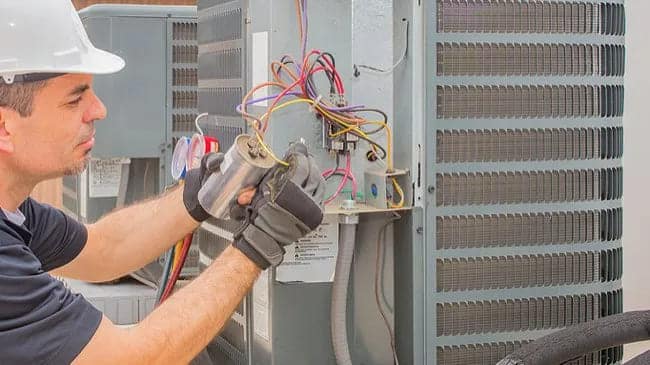
What Does the AC Capacitor Do: A Look at its Functioning
1. First Energy Surge
- Turning on the Motors
Turning on the air conditioner releases a tremendous burst of electrical energy from the capacitor. The compressor and fan motors require a lot of energy to overcome inertia and turn on, so this surge is essential for starting them.
2. Sustaining Function
- Continuous Support
After their first start-up, the capacitor gives the motors a constant current. This ensures that the air conditioner won’t stall and will function consistently throughout the cooling cycle.
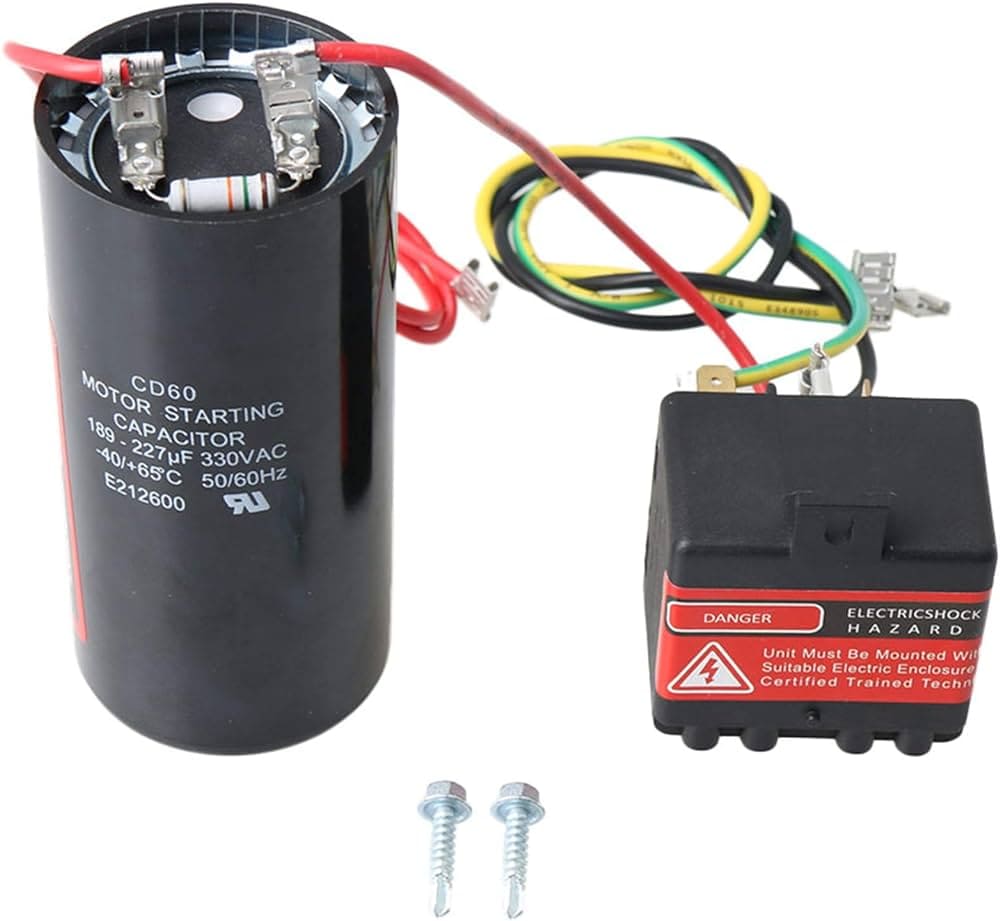
3. Electricity Retention and Release
- Phase of Charging
The capacitor saves electrical energy when the air conditioning system is turned off. It generates an electric field by accumulating charge on its conductive plates, spaced apart by an insulating substance.
- Phase of Discharge
As soon as the AC is turned on, the motors receive a sudden burst of energy that has been accumulated. The motors can start because of this sudden boost in power.
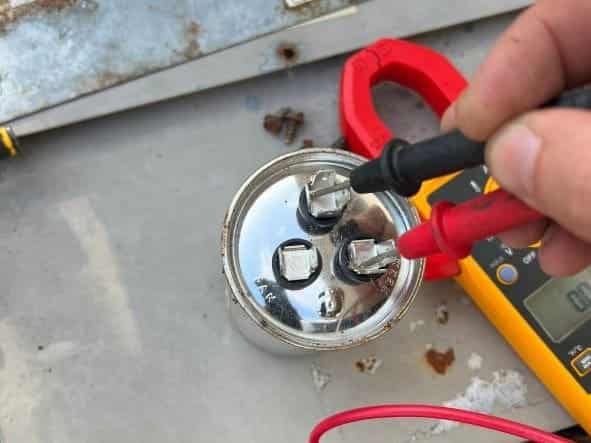
4. Measurements
- Voltage
This is the highest potential difference that the capacitor can withstand. At higher voltage levels, the capacitor can handle larger electrical currents.
- Microfarads (MFD)
This unit measures capacitance. Typically, AC capacitors have an MFD value between 5 and 80, which indicates that a higher rating means the capacitor can store energy and more electrical charge.
Knowing how an AC capacitor works and what it does underlines the importance of having a reliable and effective air conditioning system. Professional maintenance and prompt replacement can significantly increase the performance and lifespan of your air conditioning machine.
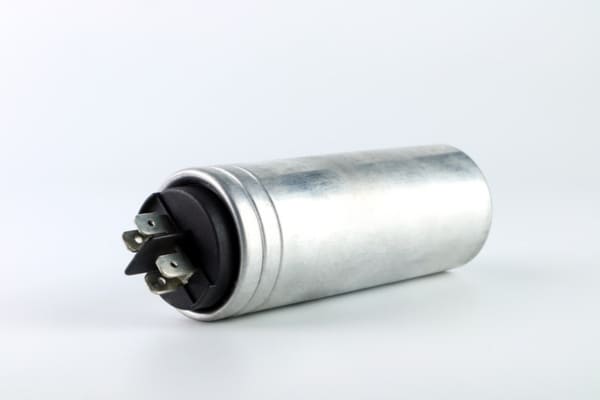
Importance of an AC Capacitor
The AC capacitor is an essential part of your air conditioning system that gives the unit’s motor the electrical boost it needs to start. Its main job is storing and releasing electrical energy so the cooling cycle air conditioner runs more smoothly. The AC capacitor is crucial for the following reasons.
Power Boost
The capacitor provides electricity to jumpstart the compressor motor and start the cooling process.
Efficiency
The capacitor helps the air conditioner reach peak performance faster during the first startup phase, which improves energy efficiency.
Prevents Motor Strain
If the capacitor isn’t working correctly, the compressor motor will have trouble starting, putting more strain on the motor and other parts of the AC system.

Temperature Control
A properly operating capacitor guarantees steady cooling by preserving the voltage levels required for the compressor motor to run.
System Stability
Frequent on-off cycling of the AC system owing to a defective capacitor lowers efficiency and places excessive strain on the overall system.
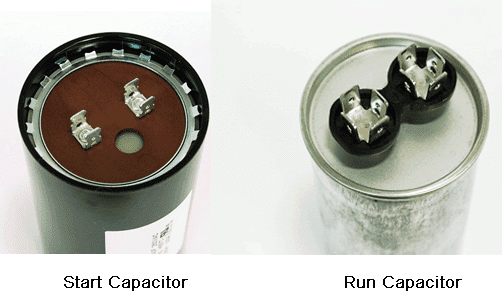
Start Capacitor & Run Capacitor: What is the Difference?
Understanding the functions of start capacitors and run capacitors in HVAC systems is essential for effective operation and maintenance. These parts are critical to starting and maintaining your air conditioner’s cooling cycle. Let’s examine each in more detail and consider the benefits of using two capacitors.
· Start Capacitor
The start capacitor plays a crucial role during the HVAC system’s startup. Its main function is to supply the first energy burst needed to start the engine and the cooling cycle. This first burst of power gives the motor the required boost to overcome inertia and start rotating. The start capacitor’s function is finished when the engine starts, and the run capacitor takes over.
· AC Run Capacitor
Now, what does an AC run capacitor do? The run capacitor is used the entire time the HVAC system operates, unlike the start capacitor, which is only active during the initial startup period. This part serves as a reservoir for electrical energy, storing and releasing it under controlled circumstances to maintain the motor’s smooth running. The run capacitor maintains the motor’s rotational motion by supplying a constant current flow, which makes it easier for your home’s air to circulate and cool down.
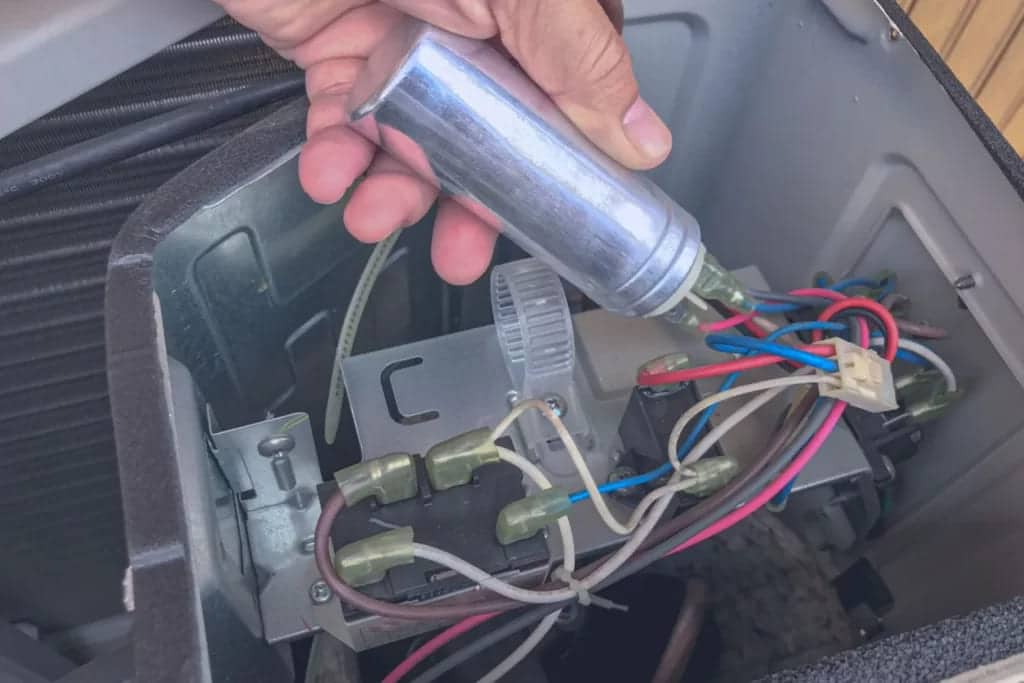
Benefits of Two Types of AC Capacitor
When one of the two single capacitors in a system fails, the start or run capacitor must be replaced separately. For several reasons, HVAC specialists could swap out both parts for a dual capacitor.
- Consolidation
Dual capacitors integrate the capabilities of the start and run capacitors into one single device. This consolidation simplifies the HVAC system’s operation and minimizes the space inside the unit, increasing airflow and efficiency.
- Convenience
HVAC specialists can perform maintenance and repairs more efficiently using a dual capacitor. During service calls, they save time and effort by only replacing one component rather than dealing with many capacitors.
- Reliability
Dual capacitors provide improved durability and reliability by combining capacitor functions into a single device. The HVAC circuit will continue to function since there are fewer parts, which lessens the possibility of individual failures.
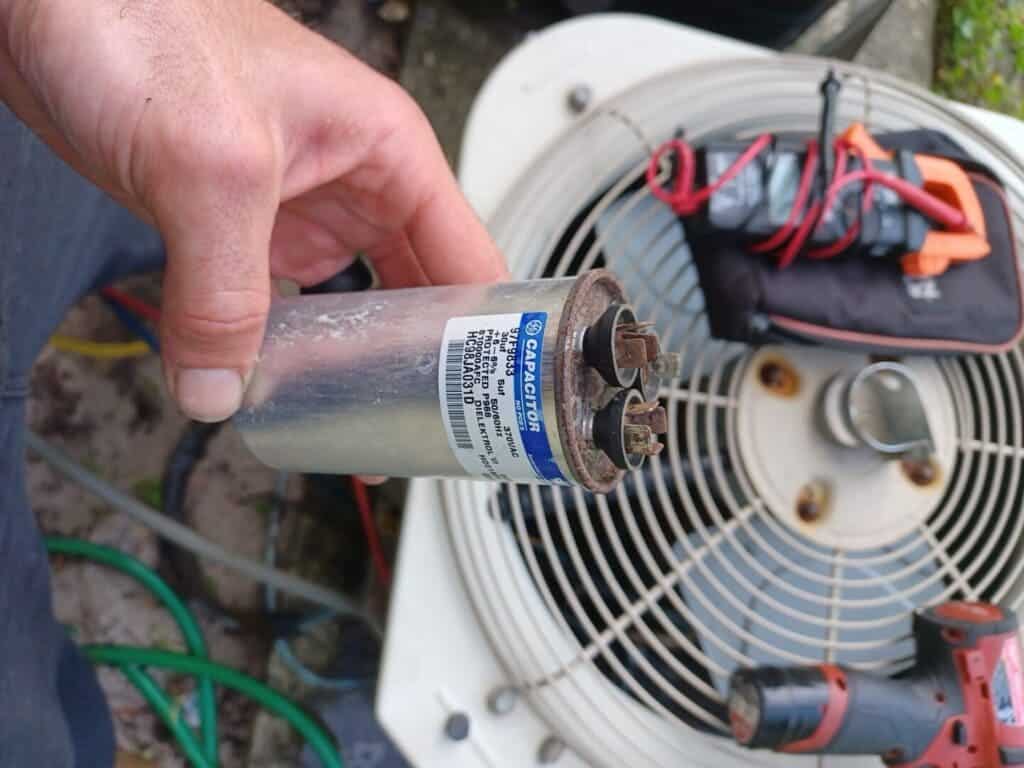
Final Thoughts on AC Capacitor
The often-overlooked heroes of your cooling system are the AC capacitors. They ensure the effective operation of your air conditioning machine by storing energy to power the compressor and fans. While run capacitors provide a steady charge for efficient operation, start capacitors give the motor a burst of energy as it starts. Knowing the functions of an A/C capacitor can help you appreciate its vital place in your HVAC system. These capacitors reduce humming noises, manage power surges, and lessen wear and tear on electrical components to keep your air conditioner operating efficiently.
In conclusion, frequent maintenance helps guard against power supply problems and lightning strikes that damage the capacitor, preserving the integrity of your cooling cycle. Acknowledging the significance of a capacitor, be it a dual-run capacitor or condensing unit capacitor, will save you money on maintenance and guarantee a dependable air conditioning system.
